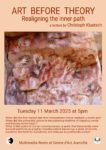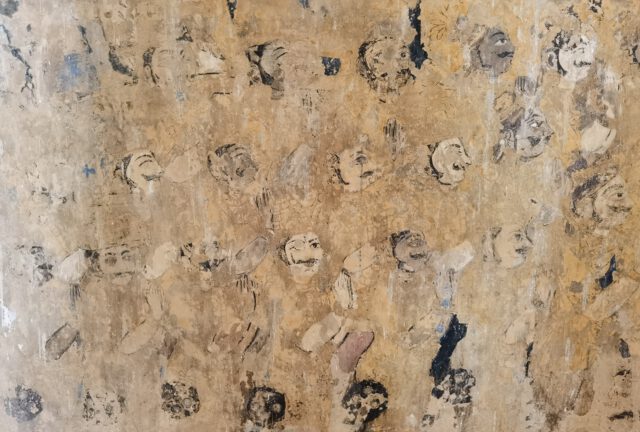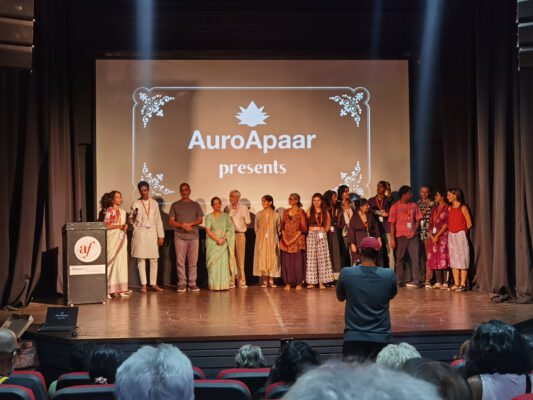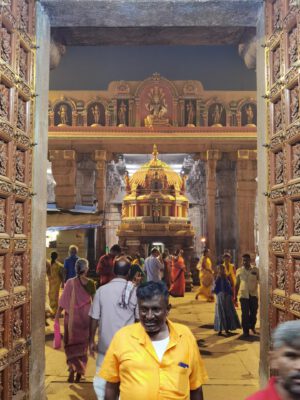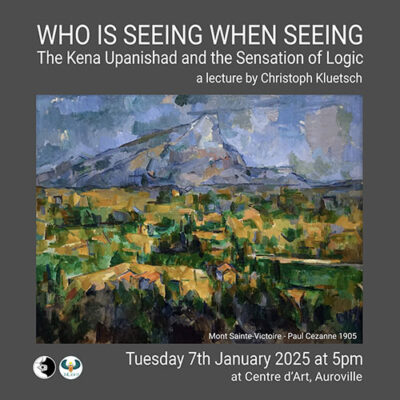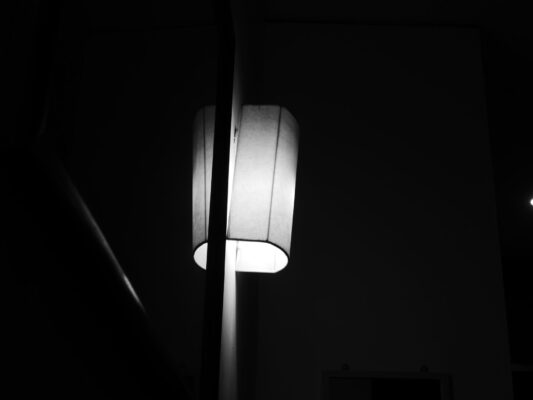A few years ago I had a guest artist in my seminar. A young, successful, socially engaged artist who wanted to make a difference. He came to our seminar, we all sat in a circle, and he asked each student why he/she was here. It was a seminar on an art university campus for a semester abroad, and so the students told him they were here for the culture, or the experience, to get to know France, etc… but he, the guest artist, didn’t accept these answers, kept asking: be honest, why are YOU here? or: don’t fool yourself why are you HERE? or: go a little deeper: WHY are you here? Everyone had to face this question. I learned above all how difficult it is to ask this question seriously. That it is not easy to answer the question is obvious anyway.
We should all ask ourselves this question again and again. Why are we actually here? Depending on the context, the question naturally takes on other dimensions: political, social, economic, personal, perspective, collective, etc…. At the end of all contextual questions, however, the naked question remains. It is question about the meaning of life.
Now many people – caught in everyday constraints from which it seems to be very difficult to escape – run after a life that is determined by conventions or consumer worlds mediated by the media. I don’t want to judge that in itself, it’s not anyone’s place. Ultimately, everyone must decide for themselves, as long as … and here comes the question I would like to raise, as long as the community does not suffer. Community is now somewhat casually said, that can mean many things, and that is also good. But there is one structure that has been used again and again as a model since antiquity, and that is the city.
City
What should a city look like, how should it be organized, who takes on which task, are there rules, if so, how are they made by whom for whom and why? Because in a city people live together, in a division of labor that should not be alienated. Each one should find its place there, which meets its abilities and expectations of a good life.
The reading of A. K. Coomaraswamy confronted me again today with this thought, he asks in an essay about civilization. Plato came to the conclusion that ultimately only a philosopher-king would know what was good for the community and the city, because only he or she, the philosopher-king would be able to take care of the inhabitants detached from power interests and personal advantage. Only she could ensure that everyone’s inner values could develop freely. This sounds very cerebral, and also quite authoritarian, even if the philosopher king would forbid authority.
In capitalism, this is all controlled by income. Supply and demand determine who gets how much and who finds a place where. But is that then also the place, which is also the right place in the question about why you are here? Is the question of space even that important? In the world of advertising, it’s all about how you can improve your place by consuming more. This is getting on the nerves of a lot of people, and it’s also clear that the planet won’t take this much longer, and AI probably won’t solve it either.
Democracy, the least of the evils, doesn’t really have an answer either, it’s a perpetual process of negotiation based on majorities. That’s good for the majority, and that’s no small thing. Modern democracies are also guided by principles. These are written into the constitution, and can only be changed by super majorities, or not at all. There may be good reasons for this from the lessons of history. But that is not a real answer to why you are here.
Auroville
Now the objection could be made that this is actually a quite personal question, which does not need to be clarified politically or socially at all. That the city only has to provide the framework conditions so that everyone there can then face this question quite privately, build or look for their own house. That is pragmatic, but not an answer. It becomes clear, the question is everything else than trivial. And as, the one who writes these lines, so I, the author, actually also does not want that anyone answers this question for me. But I would like to live in a city, where this question is in the center. Where everyone may, can and should ask this question. This city is called Auroville, and it is anything but perfect, especially now in 2023.
This city is for everyone, has no laws or capital as an ideal and also manages without advertising. The only condition that this city sets is that every inhabitant sees herself as a servant of the divine consciousness. For beginners, you can read about this in Mirra Alfassa or Sri Aurobindo, what this could mean. But one does not have to. Everyone can decide that for himself, as long as it is not an organized religion. This restriction is important, and refers to the initial question: why are you here? Why are you in this life? The whole city actually exists only to answer this question. It is a huge laboratory, a living university without administrative structures. Everything is motivated by this question. One’s life is oriented in an act of dedication as a voluntarism to a great idea. Because the question: Why are you here? contains very essential concepts. 1.) A you or implied I that 2.) exists, 3.) has a physical location, 4.) demands an answer as a question and thus an act of reflection, 5.) is finally formulated in language. All this points to a consciousness that grows beyond itself. A self-consciousness that questions itself about its own existence, and if it does so authentically, sincerely, and with perseverance, then that leads to a spiritual path. That is the meaning behind the restriction that everyone should see himself as yours of the divine consciousness. And that is why there is no room for religion. There is a space for meditation, it is open and free, and everyone may do there what he/she wants. Meditation, or concentration, is always and everywhere possible, but it also has a special space in Auroville, namely the center. This space is largely empty, as far as emptiness exists at all. The space is plain and is in matrimandir.
I sometimes hear the idea to export Auroville, to create all over the world many small Aurovilles, that is, communities, and thus contribute something in the world that tries to create such important free spaces. Is that possible? How is that different from artists‘ villages, self-managed farms, kibbutzes or revolutionary communities? Auroville is one of the very few experiments that has made it beyond the first generation. But Auroville is facing its greatest challenge and threat right now. Old entrenched structures are being brutally broken up by new external structures. This is incredibly painful. Diversity in unity, Auroville’s motto, seems to be subject to centrifugal forces. May no more misguided interests use the favor of the hour for this.


